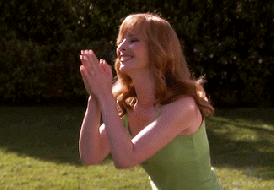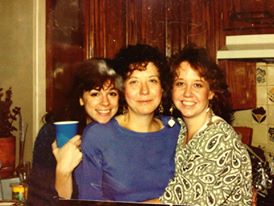Getting a dog was a huge mistake.
My husband knew it and was adamant that he wanted nothing to do with this latest obsession of mine.
“Listen to me,” he said, one night in bed. “I do not want a dog. Never.”
My eyes were glued to a dog rescue website on my laptop. So many adorable little creatures, some wearing little bandanas! “I know, sweetie,” I replied, in my husband’s general direction.
“Are you hearing me? I won’t change my mind. I don’t want any part of this.”
“Uh-huh.” I had moved on to the puppies section, furry darlings staring from playpens and the laps of volunteers.
I was warned. The woman who was helping me design a drought tolerant landscape in our front yard tried to talk some sense into me. She pointed out the time and care a dog requires and, when I changed the subject to perhaps getting a flock of chickens, she was decidedly against that, too.
“Don’t do it,” she declared, shoving a razor sharp agave plant into the dirt. “You’ll have crap everywhere. A mess. You’ll hate it.”
I took the advice to heart, at least when it came to the chickens.
But a dog was different, I reasoned to myself. Looking around my urban neighborhood, it seemed like everyone had a dog and, judging from the number of dog parks, dog boutiques and even dog bakeries that were cropping up all around the San Fernando Valley, they downright worshiped them.
I remember a friend of mine confiding to me that, as she was desperately and unsuccessfully trying to get pregnant, she began to see pregnant women everywhere, imagining their lives to be perfect and her own to be sorely lacking. I experienced a less painful, but vaguely similar feeling. Those people with dogs must be more loving, more laid back (bring on the crap!) and just plain happier, in general.
Of course, there was also the matter of my two young sons who, if I didn’t do something quick, would miss out on the requisite “boy and his dog” experience.Though most of my friends smiled and agreed when I suggested my kids would love a dog, they cautioned me about my expectations.
“You’ll end up being the only one who walks it,” they said.
“I’m ok with that. I could use the exercise anyway,” I countered.
“Your kids will be grown and gone and you’ll still have to take care of that animal.”
“I’m not getting it for the kids. This will be my dog,” I assured them.
“It’s like having another child.”
Ok, I had to give this last one some thought. My kids were just getting to the point where they could do for themselves a little more and I’ll admit, I was loving it.
Eventually, I shook it off. “If it was that hard, no one would do it! Everyone I know has a dog, so it can’t be that much of a pain in the ass.”
Oh, the hubris.
It turned out that having a dog was a gigantic pain in the ass and that everything I had been told was true. It was also true that my dear husband, always so willing to do his part with the house and the kids, really meant it when he said he wanted zero part of my grand plan to become a dog owner. On this issue, he was crystal clear. I was on my own.
Except now, I had company. Constant company.
During our first week, Jackson, our new two year old terrier mix, followed me everywhere, and when he couldn’t follow me (on the advice of the trainer at Pet Orphans, we were crate training the little darling), his oddly human-ish eyes were pinned on me with a kind of psychic Velcro. I was reminded of those early days of parenting when all my senses were heightened in response to my baby’s needs. But whereas that had been a fulfilling and exciting time, aided by bonding hormones and the knowledge that I was doing an important job that would one day result in a grown up who might, god willing, at least take me to lunch, caring for this dog, this “orphan”, drained me.
Within the first few days, I noticed that I smelled like dog. I asked my husband if he noticed and he said yes, in fact our whole house now smelled like dog. He wasn’t happy about it and, predictably, this made me feel guilty since, through no fault of his own, he was now forced to live my nightmare. I bought lavender candles and opened the windows as often as possible.
Although quiet during the day, Jackson barked all night long. All. Night. Long. I moved the crate next to my bed and that did the trick but then, instead of the barking, we had what amounted to an elderly fat man with an adenoid problem sleeping with us. My husband moved into the guest room and told me he’d return when I “figured everything out.”
We relocated the crate into my son’s room, who willingly agreed to keep the pooch company during the night. I thought this very sweet, especially since Jackson had taken to “hearding” my boy through the house, nipping at his backside and staring him down. This sleeping arrangement worked at first, but eventually he started having nightmares, waking in tears and asking to sleep with us. I’m referring to the dog, of course.
Finally, after a few weeks of my sleeping on the couch nearby, Jackson acclimated to the family room and I cheerfully remarked to my husband, over a third cup of coffee (I wasn’t yet used to the six a.m. wake up that was to be my new normal), how great it is that dogs sleep at night, unlike cats, who prowl around and walk on your head.
“And it’s so sweet how he just goes right to bed at night, just like a little person!” I intoned, adding up all the ways I could think of that dog ownership didn’t suck. “Also, he really seems to want to please me. Cats don’t care what you think,” I heard myself say. This was a pro-canine argument I had long heard dog people make, and the minute I said it I looked at my husband, sipping his coffee under the ever-watchful eye of Jackson. Did I detect a look of betrayal?
Chris and I were cat people when we met. We each brought two with us when we moved in together and one, at twenty years old and counting, was still hanging on.
“I think there’s something in a dog person that needs to be adored,” he would say, on those lazy Sundays early in our relationship.
“I think all people like to be adored.” Sometimes I just liked to be contrary. The truth was, I thought he had a point.
“But there is a personality type that needs someone waiting for them when they get home. That needs all the slobbering and tail wagging.” I’d nod in agreement as our black cat walked over the morning paper, situating himself dead center on the Style section.
So there I sat, fourteen years later, with a new dog I desperately wished I had never brought home.
Though I loved the exercise I was getting on our twice daily walks, I soon developed plantar fasciitis and a bunion. And no one warned me about the cost of grooming, food, vet bills and, if you planned on having any life whatsoever, occasional doggy daycare. It wouldn’t have mattered if they had, of course. I was hell bent on trying it out for myself and would never have listened.
Late one night, I found myself trolling the internet looking for how I might deactivate his chip, the little homing device that all rescue places insist on putting in your animal before you take them home, so that I could bring him to a shelter anonymously. It had been a month at that point, I was exhausted and depressed and had come to the conclusion that a royal mistake had been made. I wanted to turn back the clock and take it all back. The memory of my life before Jackson had a rosy glow about it: the mornings spent making pancakes with my boys instead of tying on running shoes and being pulled out the front door with a fist full of biodegradable poop bags ($5.00 for a box of thirty), the long days at the beach without dashing home in the hope that he hadn’t, once again, peed on our bedroom curtains. God, the simplicity of it all!
A word of warning to anyone who recognizes themselves in my story. Do not go online and say that you want to get rid of your dog. Forget flaming, you will be incinerated. Just an innocent question about, say, finding your dog a new home will bring down onto you such holy hell as cannot be described here.
Pet Orphans, agrees to take any animal you adopt from them back, no questions asked and I considered doing it, telling the kids that he bolted away from me on our walk (never mind that he wouldn’t let me out of his sight for even a minute, much less take off on his own), but I couldn’t imagine the shame of returning him to the disapproving volunteer, tail between my legs, so to speak. Besides how is one, in this day of Social Media (status update: introducing the newest member of the family!!! J 63 Likes) supposed to explain to friends and relatives that no, there was nothing technically wrong with the dog, other than his being one? No one would understand. I would have not a friend in the world.
“Just do it. Who cares what people think?” My best friend JoDee lives a thousand miles away, but because the dog walks were long and boring I started calling her to chat twice a day.
“I can’t. I’ll feel terrible,” I admitted. “Can’t I get someone to do it for me?” I thought of all the people I knew who might like to earn fifty bucks for a half hour of work.
“You could totally pay someone to take him back for you. Get a teenager to do it. Just don’t let the boys find out.”
I thought of my boys and how Jackson licked them head to toe as we snuggled on the couch to read at night. My own mother had a habit of bringing animals home and then giving up on them, sending them “to the farm,” or sometimes just cutting to the chase and releasing them into the night. Most of these animals weren’t around long enough for me to feel close to and, as you can probably guess, I’ve never been a real animal person, exactly. But still, those are sad memories and I refused to recreate those in the minds and hearts of my own kids.
And my husband— would I have to lie about it to him too? As much as he maintained his position on my decision to get a dog, I knew he was a softie at heart. He was the one always putting ice cubes in the cat’s water. The one who insisted on keeping the porch light off when we discovered a bird’s nest on top, with three little blue eggs inside. He talked a good game, but he would never look at me the same if I gave Jackson back and made him an orphan again.
In her TED talk on regret, Kathryn Schulz said, “the point isn’t to live without any regrets. The point is to not hate ourselves for having them.”
If I could turn back time and, as with he chickens, heed the warnings of friends and not get a dog, would I? Absolutely. Jackson is now four years old and, thanks to a few sessions with a trainer ($50.00 an hour x2), he no longer snaps at my son’s rear, but he’s developed a neurotic habit of licking our couch and we will have to order new bedroom curtains soon. Nothing about this experience turned out like I’d planned, but seeing as how we’ve all made it through four years at this point, it’s safe to say that Jackson will live out his days as a permanent member of our family.
Tonight I’ll take him for a long walk he loves down the block with the purple Jacarandas and the white cat who sneers at us as we pass her yard. I’m almost fifty years old, and I’ve never dreamed of living my life free of screw-ups. I do dream of owning my mistakes with humor and, if I can manage it, compassion. The cat’s tail doubles in size and she lets out a hiss. “Come on, buddy,” I say, Jackson strains at his leash, always ready to make a friend. “You’ll never win her over.”
Maybe not but, just like a dog, that won’t stop him from trying.









